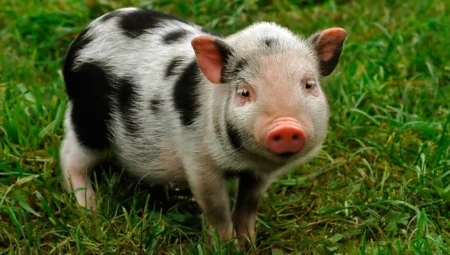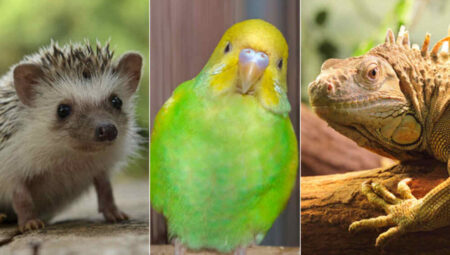Attention Deficit Hyperactivity Disorder (ADHD) is a neurodevelopmental condition that affects both children and adults, characterized by difficulties in attention, hyperactivity, and impulsivity. While traditional treatments for ADHD often involve medication, therapy, and behavioral interventions, the inclusion of pets in the lives of individuals with ADHD has shown notable benefits in managing symptoms and improving overall well-being.
The Role of Pets in Managing ADHD:
Pets can offer unique support and companionship for individuals with ADHD. They provide a source of comfort, emotional support, and routine, which can help mitigate some of the challenges associated with ADHD. Here are some of the best pets known to positively impact individuals dealing with ADHD:
Dogs:
Dogs are known for their loyalty, companionship, and boundless energy. For individuals with ADHD, a dog can serve as an excellent companion, providing structure through daily routines like feeding, walking, and playtime. The physical activity involved in caring for a dog can help release excess energy and reduce hyperactivity. Additionally, the emotional connection and unconditional love from a canine friend can offer comfort and a sense of responsibility.
Cats:
Cats, known for their independent nature, can also be great pets for those with ADHD. While they may not require as much physical activity as dogs, they still provide companionship and emotional support. The calming effect of a cat’s purring and the routine of caring for a feline friend can be beneficial for individuals with ADHD.
Fish:
Aquariums with fish can have a calming effect on people with ADHD. Watching the serene movements of fish swimming in an aquarium can promote relaxation and reduce stress and anxiety. Taking care of an aquarium, maintaining water quality, and feeding the fish can also instill a sense of responsibility and routine.
Small Mammals:
Pets like rabbits, guinea pigs, or hamsters can be suitable companions for individuals with ADHD. Their gentle nature and relatively low-maintenance care can provide a sense of comfort without requiring extensive physical activity. Interacting with these small mammals can also be a soothing and calming experience.
Birds:
Birds, such as parakeets or cockatiels, can be entertaining and interactive pets. Their vocalizations, playful behaviors, and the need for social interaction can engage individuals with ADHD, providing both companionship and mental stimulation.
Benefits of Pet Ownership for ADHD:
- Companionship and Emotional Support: Pets offer unconditional love and companionship, reducing feelings of loneliness and providing emotional support.
- Routine and Responsibility: Caring for a pet establishes a routine, which can be beneficial for individuals with ADHD. It instills a sense of responsibility and structure in daily life.
- Stress Reduction: Interacting with pets can decrease stress levels and anxiety, promoting a calmer and more relaxed state of mind.
- Physical Activity: Engaging in activities with pets, such as walking a dog or playing with a cat, encourages physical exercise, which can help in managing hyperactivity and improving focus.
In conclusion, while the choice of a pet for someone with ADHD depends on individual preferences and lifestyles, the companionship and positive effects of pet ownership on managing ADHD symptoms are widely recognized. However, it’s essential to consider factors such as allergies, space, time commitment, and the specific needs of the individual before deciding on the most suitable pet companion. Always consult with healthcare professionals or therapists to determine the best approach in incorporating a pet into ADHD management strategies.
What Are the Best Pets for Children with ADHD?
The best pets for children with ADHD are low-energy, easy to train and low-maintenance. These animals can help children spend time with them and find love and affection without distractions.
Here are some good pets for children with ADHD:
Dogs : Dogs can be a great companion for children with ADHD. They need daily exercise and affection, which can help children de-energize and reduce stress.
Cats : Cats are independent and low-energy animals. They can help your child spend time with them without distracting them.
Hamsters : Hamsters are small and low-maintenance animals. They can help your child develop a sense of responsibility.
Fish : Fish are low-maintenance animals that can provide a calming effect.
What Are the Best Pets for an Adult with ADHD?
The best pets for adults with ADHD are low-energy, easy to train and low-maintenance. These animals can help adults spend time with them and find love and affection without distractions.
Here are some good pets for adults with ADHD:
Dogs : Dogs can be a great companion for adults with ADHD. They need daily exercise and affection, which can help adults de-energize and reduce stress.
Cats : Cats are independent and low-energy animals. They can help adults spend time with them without distracting them.
Hamsters : Hamsters are small and low-maintenance animals. They can help adults develop a sense of responsibility.
Fish : Fish are low-maintenance animals that can provide a calming effect.

What are the Benefits of Pet Ownership for Children and Adults with ADHD?
Pet ownership for children and adults with ADHD can have many benefits. Pets can help in many ways, including:
*Encourage exercise and socialization. Exercising with pets is a great way for children and adults. This can help reduce hyperactivity, a common symptom of ADHD. Also, spending time with pets can help children and adults socialize with other people.
*Reduce stress and anxiety. Spending time with pets can help reduce stress and anxiety. This can help reduce irritability and anger, a common symptom of ADHD.
*Improve attention and focus. Caring for pets can help children and adults improve attention and focus. This can help reduce attention deficit, a common symptom of ADHD.
*Develop self-confidence and a sense of responsibility. Taking care of pets can help children and adults develop self-confidence and a sense of responsibility. This can help improve low self-esteem, a common symptom of ADHD.
If you are considering having a child or adult pet with ADHD, it is important to consult a specialist first. The specialist can help you choose the right pet to meet your or your child’s needs.




